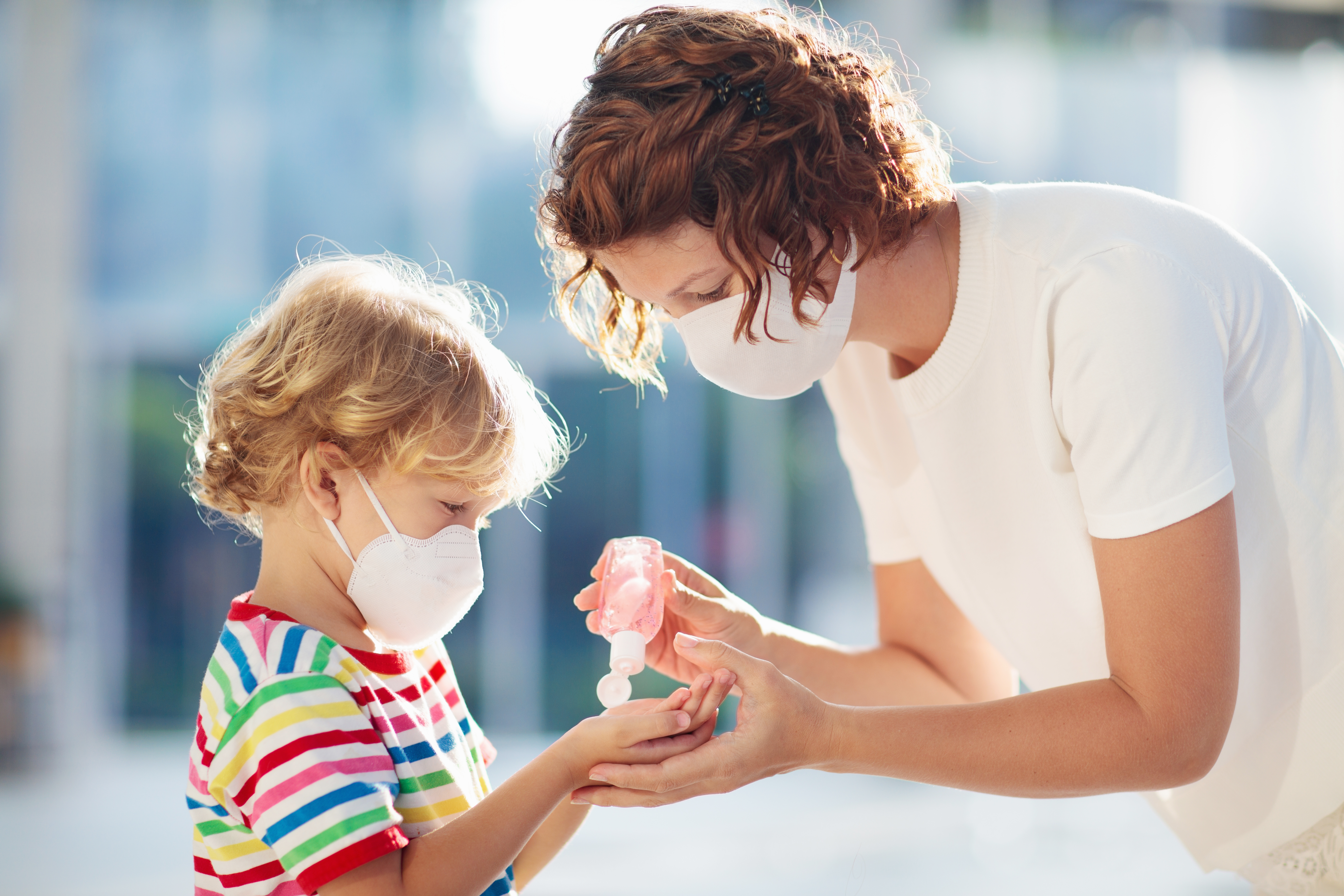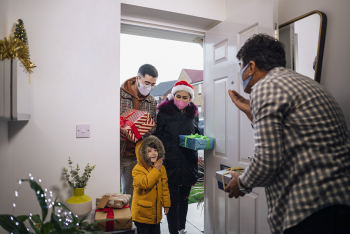A Very COVID Christmas: How to Celebrate Safely
Read More

Your child’s school routine looks a little different from previous years. Masks and hand sanitizer are essential supplies, teachers and families are doing their best to ensure the safety of our children as they step away from virtual learning and head back to their classrooms. Yet fear still lingers about what happens if a classmate or staff member contracts the coronavirus. To prepare for this scenario, here’s what you should do if your child has been exposed to COVID-19.
“After being notified that your child may have encountered someone with COVID-19, you need to be aware of two things: your child’s symptoms and the severity of their exposure,” said Kristen Trom, D.O., of Inspira Medical Group Primary Care Mullica Hill Commons.
While children are currently presenting less severe cases of COVID-19 compared to adults, they are still at risk of experiencing significant complications. That’s why parents need to monitor their children for the characteristic symptoms of COVID-19 like fever, cough, loss of taste and smell, shortness of breath and nausea on a daily basis.
“In the event your child presents with these symptoms, call your child’s primary care provider. Not every case warrants a COVID-19 test, as the treatment for mild to moderate cases is typically the same: isolate and rest. Yet screening and testing for COVID-19 are some of the best ways we can work together to mitigate the spread of this disease in the school setting,” said Dr. Trom.
The Centers for Disease Control and Prevention (CDC) currently recommends that school-aged children be considered for testing if they have signs or symptoms of COVID-19 and had close contact with a confirmed case for 15 minutes or more. Additionally, children who are not presenting symptoms should be tested if they were within six feet of someone diagnosed with COVID-19 for 15 minutes or more.
“Regardless of whether they are tested or not, children with COVID-19 symptoms should refrain from going to school to minimize the risk of spreading this illness to others,” said Dr. Trom. “Ultimately, their ability to return to school is contingent upon the duration of their symptoms.”
According to the CDC, if you believe or know your child had COVID-19, they can stop isolating 10 days after the onset of symptoms and after 24 hours without a fever. However, it is also important to know and follow the back-to-school guidelines set by your respective school district.
“If your child has tested positive for COVID-19, you must speak immediately with your child’s primary care physician to create a treatment plan based on the severity of their symptoms,” said Dr. Trom. “Unfortunately, there are currently no medications or therapies proven to be effective in curing COVID-19. But, speaking with your health care provider can help determine best practices for home and emergency care.”
While treatment options for COVID-19 are limited to isolation and close observation, there are several ways we can help reduce the spread of this disease.
1. Wear a mask
COVID-19 spreads through person-to-person contact, specifically through respiratory droplets. By having your child wear a mask, you can help mitigate the spread of these aerosolized particles.
2. Practice social distancing
When infected with COVID-19, an individual can spread the disease by talking, coughing or sneezing. However, when children maintain a safe distance of six feet or more, they lessen their chances of inhaling infected particles.
3. Maintain good hand hygiene
It is critical that children wash their hands for at least 20 seconds with soap and water or use hand sanitizer that is at least 60 percent alcohol based. Children should wash their hands before they eat, after using the restroom and even between classes.
“Unfortunately, we don’t know much about the transmission and severity of COVID-19 in children because of school closures over the past year. So now we need to take every precaution we can to keep our children safe,” said Dr. Trom. “If you are concerned that your child may have been exposed to this virus, you must speak with your primary care physician.”

A Very COVID Christmas: How to Celebrate Safely
Read More
After more than two years of masks, social distancing and travel restrictions, this winter is likely...
Read More
Coughing is one of the most common symptoms of COVID-19, and for some people, a lingering cough can...
Read More
The material set forth in this site in no way seeks to diagnose or treat illness or to serve as a substitute for professional medical care. Please speak with your health care provider if you have a health concern or if you are considering adopting any exercise program or dietary guidelines. For permission to reprint any portion of this website or to be removed from a notification list, please contact us at (856) 537-6772